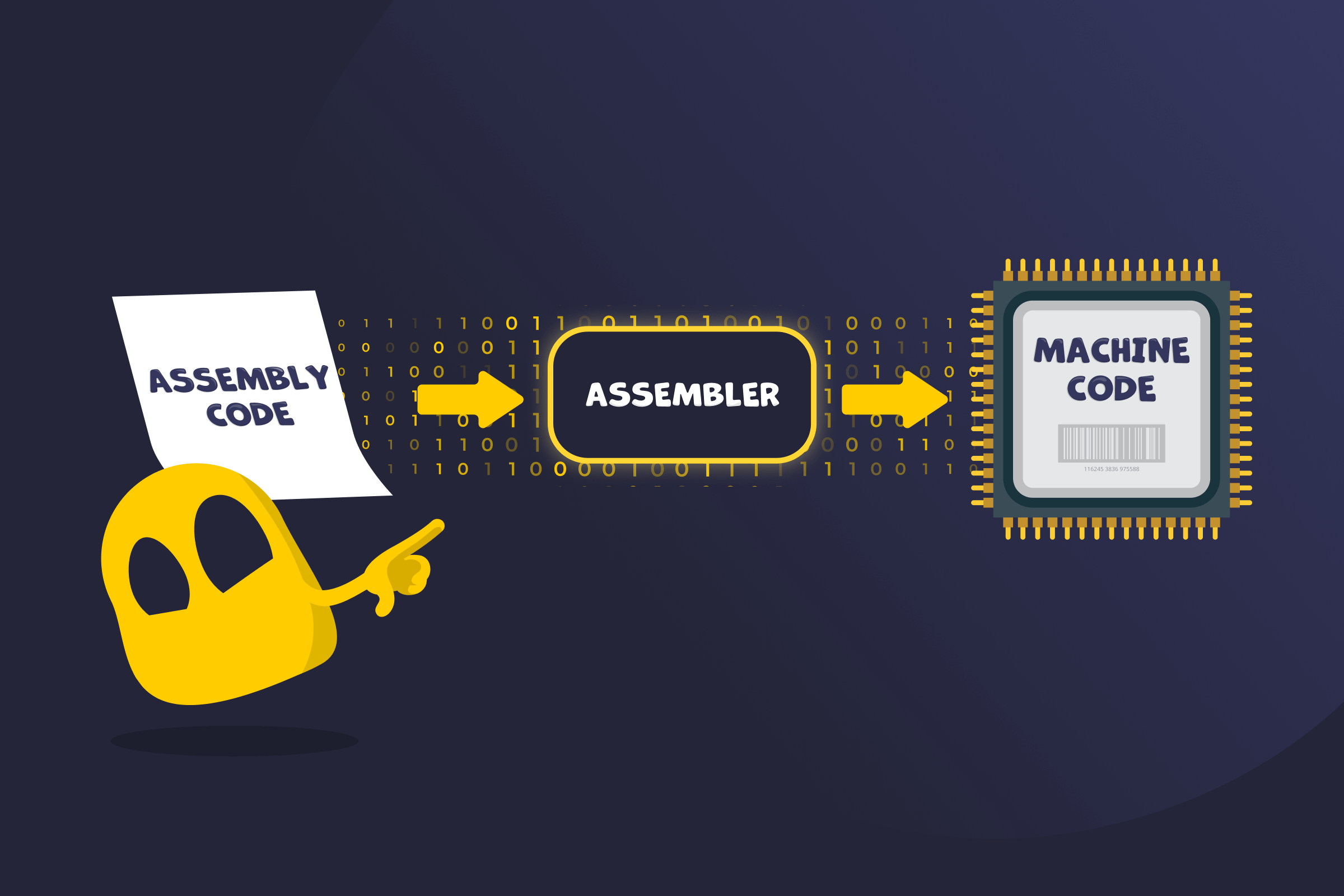Assembler

Assembler Definition
An assembler is a program that turns assembly language into machine code so a processor can execute it. Assembly language uses short symbolic instructions that closely represent a computer’s hardware operations, while machine code consists of the binary instructions a CPU can understand.
Low-level programming and specialized applications require assemblers for precise hardware control. They let programmers optimize performance, create smaller programs, and make the most of a device’s memory and processing capabilities.
Assemblers translate commands, labels, and memory references into the exact binary instructions and addresses required by a specific processor. Because each assembly instruction typically maps directly to a real CPU instruction, programmers can control hardware behavior very precisely. Assemblers are hardware-specific, meaning each one is designed for a particular computer architecture and its instruction set.
How an Assembler Works
- Read source code: The assembler reads the assembly language file line by line and identifies instructions, labels, and directives.
- Parse instructions: Each instruction name is recognized and matched to a specific operation supported by the target CPU.
- Record labels: The assembler tracks all labels and symbols so it knows where instructions and data will be placed in memory.
- Resolve addresses: Symbolic names are replaced with their actual numeric memory addresses once positions are known.
- Generate machine code: The assembler converts each instruction into its final binary form using operation codes, registers, and addresses.
- Create output file: The finished machine code is written to an object file or executable that the processor can run.
Benefits of Assemblers
- High execution speed: Runs very quickly because instructions are closely tied to the CPU with little overhead.
- Greater hardware control: Gives direct access to processor instructions and memory, making it easier to fine-tune speed and memory usage.
- Precise performance tuning: Allows developers to optimize critical sections of code where timing and efficiency matter most.
- Better understanding of system behavior: Helps programmers see how software interacts with hardware at a low level.
- Compact program size: Produces smaller executables compared to high-level languages, which is helpful on systems with limited storage.
Limitations of Assemblers
- Slow development: Writing and testing code take longer due to the low-level details.
- Difficult debugging: Errors are harder to find and fix compared to high-level languages.
- Architecture dependent: Code is tied to a specific processor and isn’t easily portable.
- Steep learning curve: Strong understanding of hardware and CPU instructions is a must.
- Hard to maintain: Large programs are difficult to organize and update over time.
Read More
FAQ
Assemblers provide very limited automatic optimization. Most mainly translate assembly instructions into machine code without changing their structure. Some may perform small improvements, like resolving instruction sizes or removing unused labels, but overall performance and efficiency depend on how the programmer writes the assembly code.
No, assembly language isn’t the same as machine code. Assembly language is a human-readable representation of machine instructions that uses short command names and symbols. Machine code is the actual binary data made up of 0s and 1s that the processor executes directly. An assembler translates assembly language into machine code.
Yes, assemblers are platform-specific. An assembler is designed to work with a particular processor architecture and instruction set. This means assembly code written for one type of CPU, such as x86 or ARM, can’t run on a different architecture without being rewritten for that platform.

 45-Day Money-Back Guarantee
45-Day Money-Back Guarantee